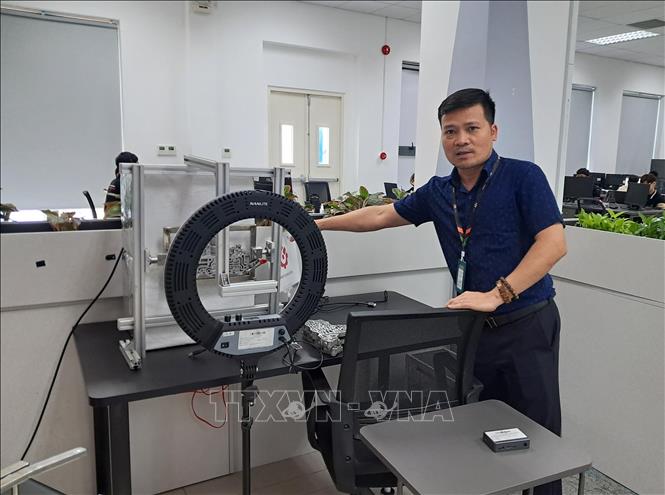
If over the past decade, three strategic breakthroughs of institutions, infrastructure and human resources have led the country's development process, then entering the 2026-2030 period, the Draft Political Report submitted to the 14th National Party Congress added breakthroughs in science and technology development, innovation and national digital transformation.
This is a step of innovation and development of thinking in the Party's development planning, with science and technology, innovation and digital data being included in the economic development model for the first time, replacing the model based on resources, capital and labor. New breakthroughs in science and technology, innovation and digital transformation will be the foundation for developing a modern and knowledge-based economy.
This is the fourth breakthrough, along with the three current breakthroughs, that will promote economic restructuring, innovation in development structure, and move towards a growth model based on productivity and high technology.
The engine of productivity and self-reliance grows
In the context of globalization and the Fourth Industrial Revolution, science and technology have become a strategic resource for production and competition. At the national level, the ability to master technology determines total factor productivity (TFP) - an index reflecting the endogenous creativity of the economy.
Associate Professor Dr. Tran Dinh Thien, former Director of the Vietnam Economic Institute, commented: "Without a strong foundation of science and technology, it is impossible to talk about independence and autonomy in development. Technology not only increases productivity, but also determines the ability to participate in the global value chain."
In fact, over the past 10 years, Vietnam's total factor productivity has increased but is still lower than that of ASEAN-4 countries. Identifying science and technology as one of the new strategic breakthroughs aims to catch up with the regional technological level, develop key industries, and move towards self-sufficiency in core technologies in areas such as energy, new materials, semiconductors and biotechnology. Therefore, breakthroughs in science and technology will become the "locomotive" of the economy. The Government needs to create mechanisms and policies to encourage and support.
The Soul of the New Growth Model
If science and technology are the "engine", then innovation is the "soul" of the new growth model - where value is created not only from physical products but also from new ideas, solutions and business models.
Economist, Dr. Nguyen Bich Lam, former Director General of the General Statistics Office (now the General Statistics Office) proposed: “To promote and successfully implement innovation, the Government needs to simultaneously implement all three aspects: institutional and governance innovation, improving operating methods, policies and public management; technological innovation, creating new products, processes and services; social and human innovation, arousing the spirit of daring to think, daring to do, daring to be different”.
Currently, the Vietnamese economy has more than 3,000 innovative startups, 100 venture capital funds and a rapidly expanding innovation ecosystem. However, according to Dr. Nguyen Duc Kien, former Head of the Prime Minister's Economic Advisory Group: "Innovation in Vietnam is still more of a trend and not closely linked to business development strategies. Innovation should be considered a criterion for assessing national competitiveness and a measure of institutional effectiveness."
The Draft Political Report of the 14th National Congress emphasizes: Developing a national innovation ecosystem, forming regional, industry and enterprise innovation centers, promoting creative human resources and creating a flexible legal corridor (sandbox) for testing new technologies. This is the method for Vietnam to move from "innovative application" to "original innovation".
Along with science, technology and innovation, national digital transformation is considered the "new generation infrastructure" of development. Digital transformation is not only about digitizing processes, but also about transforming the way of organizing, managing and producing on a data platform.
Dr. Nguyen Duc Kien believes that digital transformation is the foundation for implementing modern institutions. When management, production and consumption are all based on data, a digital economy is formed, the first step of a knowledge economy.
According to the Ministry of Information and Communications, up to now, 100% of ministries, branches and localities have had a data management platform; 70% of level 4 online public services; e-commerce accounts for 10% of total retail sales of goods. But as experts warn, digital transformation is still fragmented, lacking integration, and has not yet become a driving force for productivity in the whole society.
Putting national digital transformation into a strategic breakthrough group demonstrates the mindset of institutionalizing technology, turning technology into an operating tool, data into a resource, and citizens into the center of the digital system. This is the direction to help modernize the state, make society transparent, and enhance national competitiveness.
Dr. Nguyen Bich Lam commented that with digital transformation, data becomes a new resource and technology becomes the lever of new production methods, promoting institutional reform, the economy enters a period of profound transformation in both structure and development dynamics.
The process of digital transformation and digitalization of the economy will improve the efficiency of production, administration and public services, when most industries and fields - from processing industry, finance, logistics to agriculture and public administration - are strongly digitalized. Digital transformation helps reduce transaction costs, increase information processing speed, improve labor productivity, and expand opportunities to access global markets for Vietnamese enterprises, especially for the private sector and small and medium enterprises.
It can be said that the Party's determination of science - technology, innovation and digital transformation as a new strategic breakthrough of fundamental breakthrough level because this breakthrough simultaneously operates all three elements of development strength: knowledge - technology - creative people.
This policy is not only a strategic adjustment, but also a statement of Vietnam's new development vision in the 21st century: Development based on intangible resources - knowledge, creativity and data; focusing on creating an innovative economy, where technology becomes an institutional lever; towards a strong and prosperous Vietnam by 2045, based on Vietnamese intelligence and technological autonomy.
Foundation for a new period of development
Setting science and technology development, innovation and national digital transformation as a new strategic breakthrough in the Draft Political Report of the 14th National Congress is not only a policy supplement but also a shift in development thinking, demonstrating the Party's vision in the face of the trend of the digital age and knowledge economy.
If the three traditional strategic breakthroughs: institutions, infrastructure and human resources, create the foundation for Vietnam to enter the industrialization period, the new breakthrough in digital transformation is the endogenous driving force for the country to enter the comprehensive modernization stage, raising the national position in the global value chain. Science and technology provide the engine for productivity and autonomy.
Innovation gives life to new growth models; digital transformation creates the infrastructure of the data age, where all activities are driven by knowledge and technology.
These three pillars form Vietnam’s “new development triangle” in the 21st century – the triangle of knowledge, innovation and transformation. When implemented synchronously, it will help restructure the growth model, improve social productivity, and more importantly, unleash the creativity of Vietnamese people – the nation’s greatest and most sustainable resource.
The Party and the State have identified breakthroughs in science and technology, innovation and digital transformation not only to catch up with the world, but also to shape Vietnam's own development path in the era of artificial intelligence and green economy. This is a breakthrough of vision - of aspiration and of the courage to create the future.
Source: https://baotintuc.vn/thoi-su/nhung-dong-luc-quyet-dinh-vi-the-viet-nam-trong-ky-nguyen-so-20251112145930969.htm



![[Photo] Highways passing through Dong Nai](https://vphoto.vietnam.vn/thumb/1200x675/vietnam/resource/IMAGE/2025/11/12/1762940149627_ndo_br_1-resize-5756-jpg.webp)




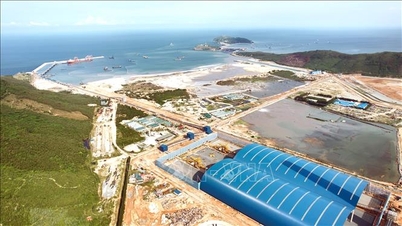












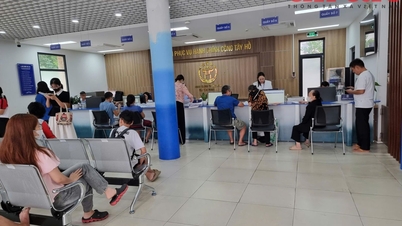






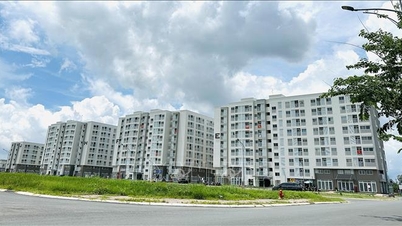

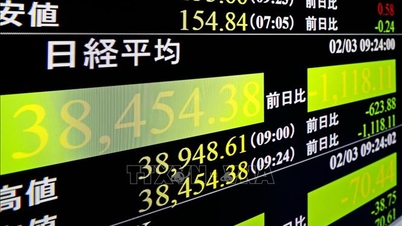



























































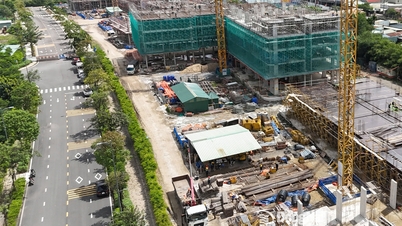



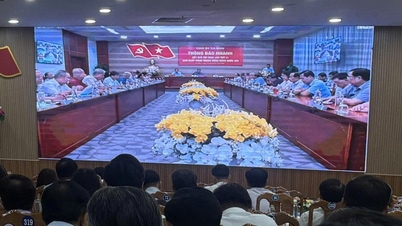





![Dong Nai OCOP transition: [Article 3] Linking tourism with OCOP product consumption](https://vphoto.vietnam.vn/thumb/402x226/vietnam/resource/IMAGE/2025/11/10/1762739199309_1324-2740-7_n-162543_981.jpeg)








Comment (0)